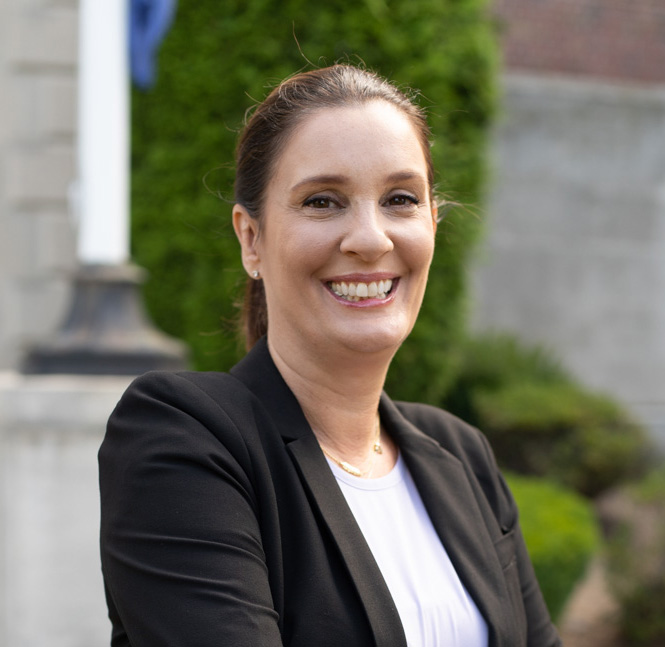
We talked to many of the local candidates running for public office in the upcoming 2020 election. We asked each of them the same set of questions, with the promise to print their answers only lightly edited for clarity. The following answers are from Maria Bucci (D), running against Kenneth Hopkins (R), for Cranston mayor.
Motif: What are, in order, your top three priorities or issues if elected?
Maria Bucci: First and foremost, we must continue to take the risk of COVID-19 seriously and prioritize the health and safety of our residents. This includes developing a city-wide vaccine deployment plan in consultation with the Department of Health while building a response fund from state and local grants to drive small business innovation.
Second, we must keep Cranston affordable for all residents. That means maintaining a diverse tax base to protect our residents from unaffordable tax increases. We also must revive our Affordable Housing Commission and establish a sustainability funding source to expand our affordable housing and provide options for all of our residents.
Third, we must continue to improve the city services on which our residents rely. That includes pushing for a Zero Waste initiative to increase recycling rates and reduce waste management costs. We need to relaunch our city website to make permitting more streamlined and support new businesses. Finally, in order to prevent flooding and protect our waterways, let’s get our storm drains cleaned out and implement more green infrastructure.
Motif: After the election, the Supreme Court is scheduled to hear a case with ramifications that could eliminate the Affordable Care Act, potentially reducing the high insured rate in Rhode Island. In a country without ACA protections, what should healthcare for Rhode Islanders look like?
MB: It is unfortunate that politics at the national level is so dysfunctional that we cannot reliably deliver affordable healthcare to all of our residents. In the absence of leadership, I continue to support Rhode Island’s efforts to put Affordable Care Act protections into state law and make sure we help those with the greatest need in our community.
Motif: Do you think police departments are overfunded, and if so, how would you reallocate those resources?
MB: There is so much uncertainty around what our city’s budget will look like next year. We are facing the potential for unfulfilled promises from the state on education funding and car tax phaseout. Our federal government wants to fight rather than providing relief for local governments. Until we know whether the state and federal government will deliver on their promises, I am unable to identify what departments may be overfunded in a difficult budget year. That being said, I believe that we need to make sure that our city and social services are adequately funded in order to deliver the social and emotional support services that are needed.
Motif: Should school funds be pooled and redistributed on a weighted scale to address statewide equity issues, or should districts continue to fund their own community schools? Are there school districts that should be combined?
MB: Right now we rely on both state and local funding sources for our schools. I believe it is essential that a community is financially invested in its schools, so I would not support moving solely to a statewide funding formula. However, the current funding formula needs to continue to evolve as our communities grow and change to be sure that funding reflects our communities now, not our communities 10 years ago.
Motif: COVID most harshly impacted a lot of core industries in Rhode Island (eg, hospitality, restaurants, arts/entertainment). What can elected officials do to revitalize these industries and improve the lives of our poorest residents?
MB: When it comes to our local businesses, the city should pursue every state and federal grant available to provide COVID relief to those businesses that are struggling at no fault of their own. The state has used some CARES Act funds to support these efforts, and I believe we should pool as much money as possible to create our own local response fund to support businesses as they need to innovate and operate under health restrictions.
The disparate health impacts of this pandemic has shown us underlying inequities in not just our healthcare system but also so many of our institutions. Elected officials need to take equity and historic bias into account when providing all levels of city services.
Motif: Climate change is a very real threat in Rhode Island — we are in close proximity to the ocean and broke temperature and drought records this year. If elected, what steps would you take to protect the environment?
MB: Our community has felt the direct impact of a changing climate and short-sighted development decisions. It takes the form of more flooding events, urban heat effects, and the ever-increasing sea level rise of Narragansett Bay.
Creating and implementing a Complete Streets ordinance will give residents and businesses the opportunity to engage in the redevelopment of our transportation corridors that connect us with our neighbors and link our commercial and residential sectors. Our residents need more effective and realistic options beyond car ownership to live and work in Cranston.
Trash and recycling pickup are a mainstay of municipal government. Cranston privatized this service when hiring Waste Management, which resulted in escalating costs with diminished results. I am committed to delivering a more effective arrangement that will provide necessary services to our community and boost the education and community engagement required to move toward being a Zero Waste community.



